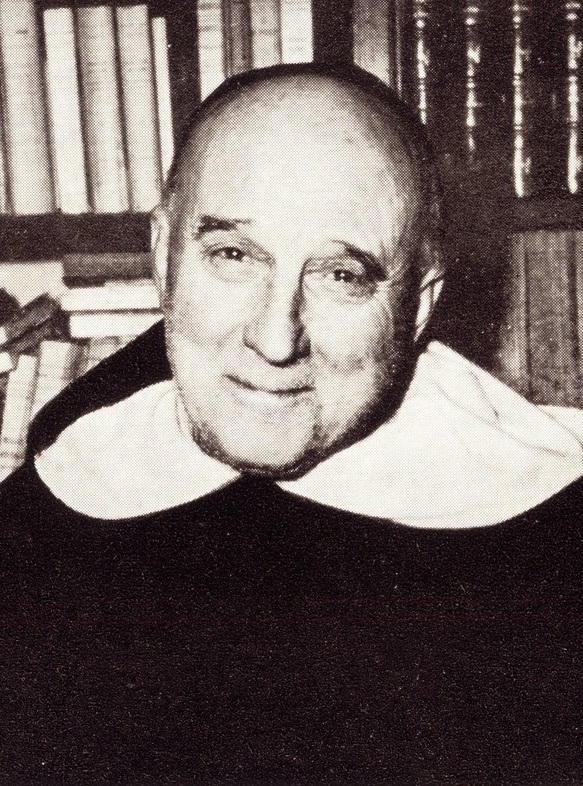Therefore, Lord, who grant understanding to faith, grant me that, in so far as you know it beneficial, I understand that you are as we believe and you are that which we believe. Now we believe that you are something than which nothing greater can be conceived. Then is there no such nature, since the fool has said in his heart: God is not? But certainly this same fool, when he hears this very thing that I am saying - something than which nothing greater can be conceived - understands what he hears; and what he understands is in his understanding, even if he does not understand that it is. For it is one thing for a thing to be in the understanding and another to understand that a thing is. For when a painter conceived beforehand what he is going to make, he has in his understanding what he has not yet made but he does not yet understand that it is. But when he has already painted it, he both has in his understanding what he has already painted and understands that it is.
Therefore even the fool is bound to agree that there is at least in the understanding something than which nothing greater can be conceived, because when he hears this he understands it, and whatever is understood is in the understanding. And certainly that than which a greater cannot be conceived cannot be in the understanding alone. For if it is at least in the understanding alone, it can be conceived to be in reality too, which is greater. Therefore if that than which a greater cannot be conceived is in the understanding alone, that very thing than which a greater cannot be conceived is something than which a greater can be conceived. But certainly this cannot be. There exists, therefore, beyond doubt something than which a greater cannot be conceived, both in the understanding and in reality.
Anselm's Ontological Argument in Syllogistic Format:
P1: God is that nothing greater than which can be conceived (NGC).
P2: NGC exists either (a) only in the mind, or (b) both in the mind and in reality.
P3: NGC cannot exist (a) only in the mind.
C: Therefore, NGC exists (b) both in the mind and in reality.
Defense of P3: If NGC existed (a) only in the mind, then NGC would not be an NGC. But that would be contradictory. Therefore, NGC does not exist (a) only in the mind, but (b) both in the mind and reality.
P1: G is NGC
P2: NGC is (R V M)
P3: ~ M
C: Therefore, R
From St. Thomas Aquinas, Summa theologiae I.2.1:
Article 1. Whether the existence of God is per se known?
Objection 2. Further, those things are said to be per se known which are known as soon as the terms are known, which the Philosopher (Posterior Analytics I.3) says is true of the first principles of demonstration. Thus, when the nature of a whole and of a part is known, it is at once recognized that every whole is greater than its part. But as soon as the signification of the word "God" is understood, it is at once seen that God exists. For by this word is signified that thing than which nothing greater can be conceived. But that which exists actually and mentally is greater than that which exists only mentally. Therefore, since as soon as the word "God" is understood, it exists mentally, it also follows that it exists actually. Therefore the proposition "God exists" is per se known.
Reply to Objection 2. Perhaps not everyone who hears this word "God" understands it to signify something than which nothing greater can be thought, seeing that some have believed God to be a body. Yet, granted that everyone understands that by this word "God" is signified something than which nothing greater can be thought, nevertheless, it does not therefore follow that he understands that what the word signifies exists actually, but only that it exists mentally. Nor can it be argued that it actually exists, unless it be admitted that there actually exists something than which nothing greater can be thought; and this precisely is not admitted by those who hold that God does not exist.
Aquinas' Critique, as it Corresponds to the Syllogism Above:
P1 is unfounded: "Perhaps not everyone who hears this word "God" understands it to signify something than which nothing greater can be thought, seeing that some have believed God to be a body."
The argument is invalid. The argument commits the fallacy of equivocation due to multiple suppositions of the term "God." In the premises, the terms "God" and NGC are taken with material supposition: the premises speak of the concepts "God" and NGC. But in the conclusion, the term "God" is taken with formal supposition: that is, the conclusion speaks, not of the concept "God," but of the real entity God. The argument, thus, makes an invalid inference from the concept "God" (which we create in our minds) to the reality God (Who created our minds). From the concept of an NGT one can only infer that such a concept includes the concept "existence" as part of its comprehension, much in the same way that, from the concept "perfect tropical island" we can infer that such a concept includes the concept "existence" as part of its comprehension. But none of this allows us to ascribe any real, extramental existence, whether to God or to a perfect tropical island. In Aquinas' own words, from the premises given, "it does not follow that [he who thinks of an NGT] understands that what the word signifies exists actually, but only that it exists mentally."
Note: the only way one could infer God's real existence from such an argument is by supplying a premise that states that an NGT really exists. If an NGT really exists, then it would follow that it has necessary existence: it would exist by definition. But that premise would turn the whole argument in to a petitio principii (i.e., the fallacy of circular reasoning, or 'begging the question'). In Aquinas' words, "nor can it be argued that it actually exists, unless it be admitted that there actually exists something than which nothing greater can be thought; and this precisely is not admitted by those who hold that God does not exist."
Note: the only way one could infer God's real existence from such an argument is by supplying a premise that states that an NGT really exists. If an NGT really exists, then it would follow that it has necessary existence: it would exist by definition. But that premise would turn the whole argument in to a petitio principii (i.e., the fallacy of circular reasoning, or 'begging the question'). In Aquinas' words, "nor can it be argued that it actually exists, unless it be admitted that there actually exists something than which nothing greater can be thought; and this precisely is not admitted by those who hold that God does not exist."








2 comments:
First off, I think Saint Thomas's critique "not everyone who hears 'God' understands it.." is weak. Saint Anselm is providing a stipulative definition. But let's give it to Thomas that people don't understand God to be NGC. This still says nothing about the actual argument for NGC.
Maybe it would be more clear to formulate Saint Anselm's NGC as "the thought object than which no thought object (TO) can be thought to be greater." For now, let's attach this definition to the word "God".
Now reconstruct the proof:
P1) God is the TO than which no TO can be thought to be greater. (definition)
For reductio:
P2)Suppose that God is only in the intellect. That is to say, God is thought of but does not exist.
P3) Any TO that can be thought to exist in reality can be thought to be greater than any TO that is only in the intellect.
P4) God can be thought to exist in reality.
C1) Some TO can be thought to be greater than the TO than which
no TO can be thought to be greater.
C1 is a contradiction. Hence, P2 is false, and God is not only in the intellect.
Most people go to Summa Theologiæ I a. 2 for Aquinas on God's existence, but I think his Summa Contra Gentiles cap. 10 ff. is much better.
Happy feast day of St. Anselm!
Post a Comment